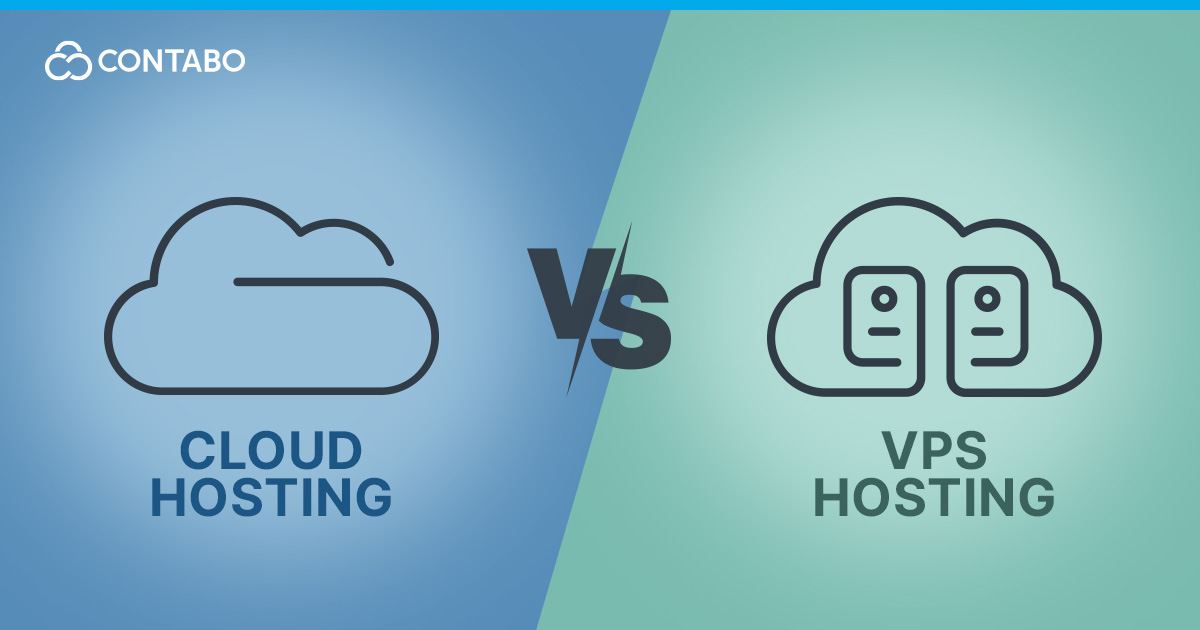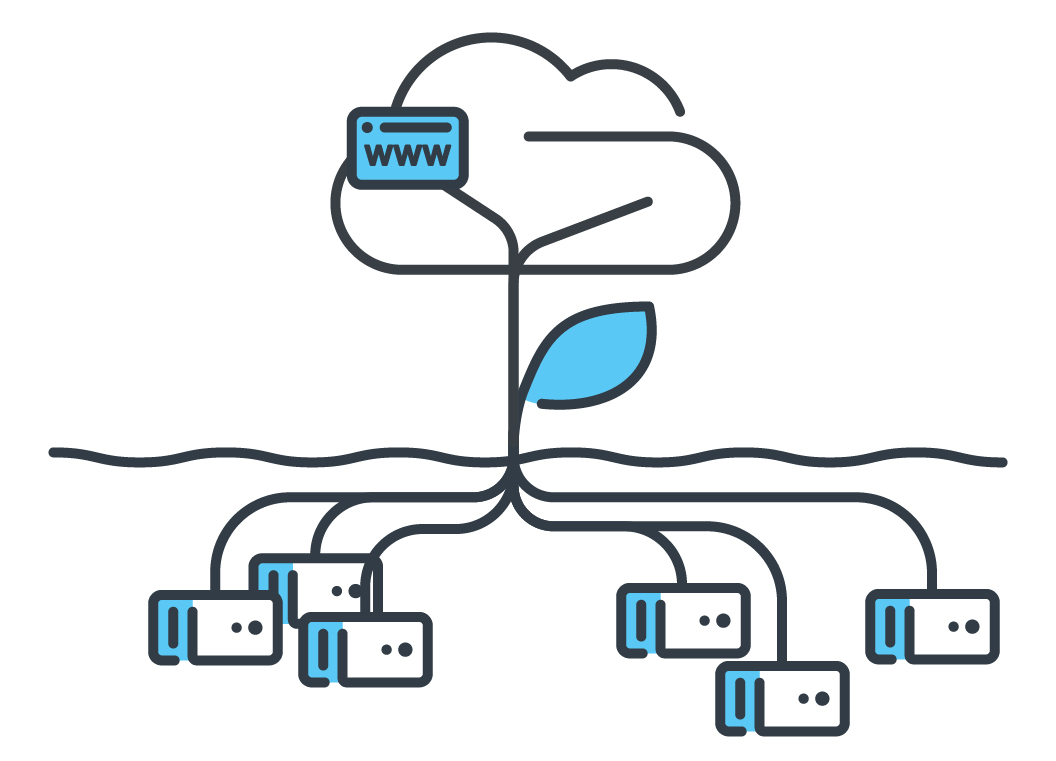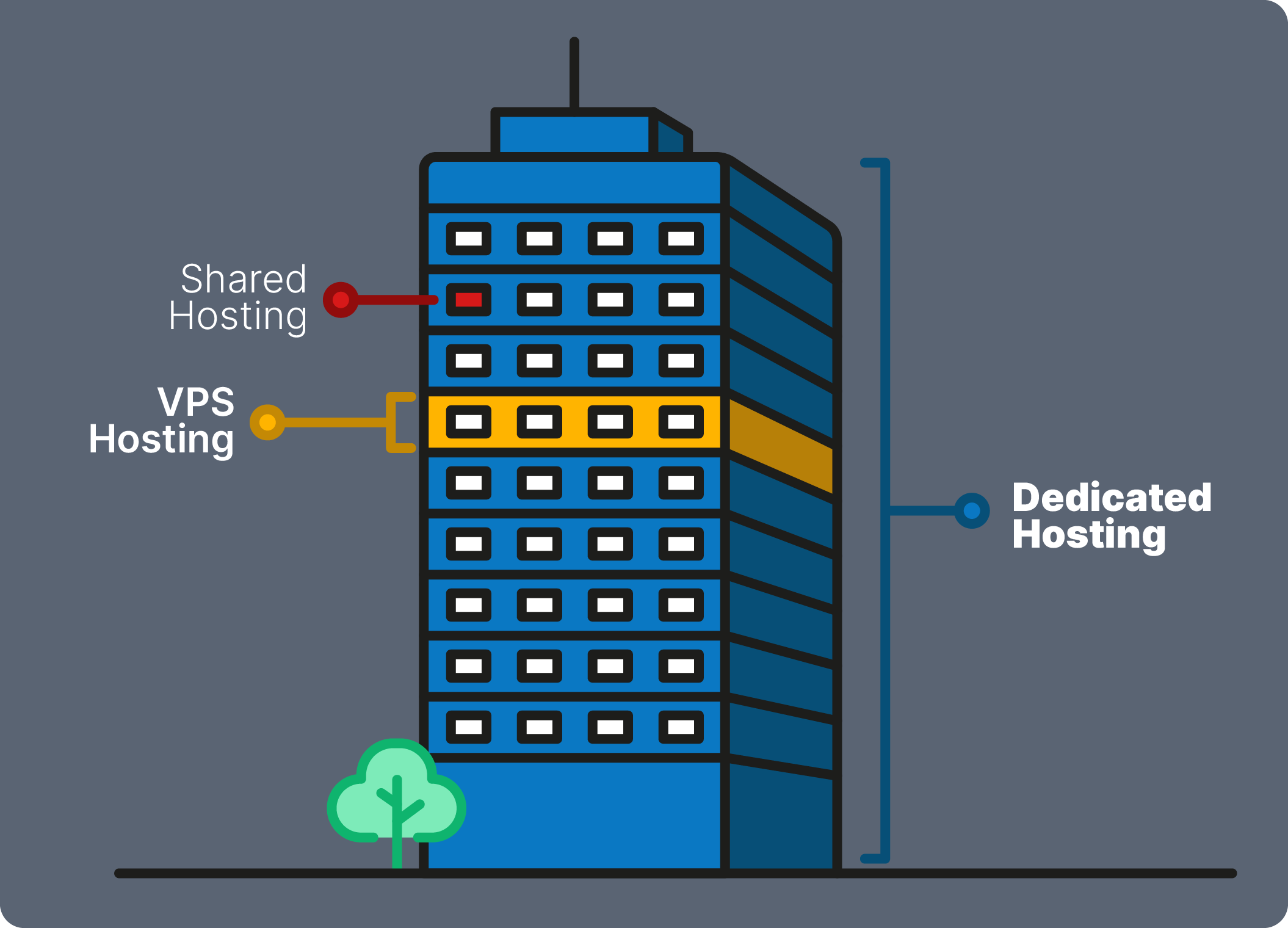
Are you uncertain about which hosting solution is right for your growing business? You’re not alone. The choice between cloud hosting vs VPS hosting can feel like navigating a maze. But don’t worry – we’re here to guide you through it.
In this article, we’ll break down the differences between cloud and VPS hosting, helping you understand which option might be the perfect fit for your website or application. Whether you’re considering hosting for e-commerce stores, a busy blog, or an exciting startup, we’ll show you how each hosting type can support your projects. By the end, you’ll have the knowledge to make an informed decision that aligns with your business goals and budget.
Article Topics
- What is Cloud Hosting?
- What is VPS Hosting?
- Cloud vs VPS Hosting: Key Features Compared
- Pros and Cons of Cloud Hosting
- Pros and Cons of VPS Hosting
- Performance Comparison: Cloud vs VPS Hosting
- Scalability and Flexibility: Cloud vs VPS Hosting
- Security in Cloud Hosting and VPS Hosting
- Cost Analysis: Cloud Hosting vs VPS Hosting
- Use Cases: When to Choose Cloud or VPS Hosting
- Conclusion: Making the Right Choice for Your Business
What is Cloud Hosting?
Imagine your website as a plant growing in a large, interconnected garden. That’s cloud hosting in a nutshell. Instead of being confined to a single pot (or server), your site’s roots spread across multiple servers, drawing resources from a network of machines.

Here’s where cloud hosting really makes a difference:
- Distributed resources: Your website’s data and applications are spread across multiple servers. This means if one server has a problem, the others are available to compensate.
- Scalability on demand: Need more power for a sudden traffic spike? Cloud hosting lets you scale up in a snap. It’s like having a magic watering can that adjusts to your plant’s needs.
- Pay-as-you-grow model: You only pay for the resources you use. This makes cloud hosting a cost-effective web hosting solution for businesses of all sizes.
- High reliability: With your site spread across multiple servers, there’s no single point of failure. This translates to better uptime for your website.
- Global reach: Cloud infrastructure for websites often spans multiple data centers, potentially improving load times for visitors around the world.
Cloud hosting makes a lot of sense for businesses that experience fluctuating traffic or are planning for rapid growth. E-commerce sites, for instance, can handle holiday rushes without breaking a sweat.
What is VPS Hosting?
Imagine a high-rise apartment building where each resident has a whole floor to themselves. That’s VPS hosting in a nutshell. VPS stands for Virtual Private Server, and it’s like having your own private space in the world of web hosting for businesses.

Here’s what makes VPS hosting special:
- Dedicated resources: Unlike shared hosting, where you’re sharing a house with many roommates, VPS gives you your own space. You get a guaranteed slice of the server’s CPU, RAM, and storage.
- Root access: You’re the boss of your virtual server. Want to redecorate? Go for it. In tech terms, this means you can install any compatible software you need, just like you would on a dedicated server.
- Customization: Most VPS hosting control panels let you tweak your server settings to your heart’s content. It’s perfect for businesses that need specific software or configurations.
- Scalability: As your website grows, so can your VPS. Many providers offer easy upgrades, letting you add more resources without moving to a new server.
- Cost-effectiveness: VPS hosting bridges the gap between shared hosting and dedicated servers. You get many of the benefits of a dedicated server, but at a fraction of the cost, making it a more affordable web hosting solution.
VPS hosting is ideal for growing businesses, developers who need a test environment, or anyone who wants more control over their hosting setup. It’s a sweet spot for many websites that have outgrown shared hosting but aren’t quite ready for the complexity of cloud hosting.
Curious about how VPS hosting could work for your project? Explore Cloud VPS from Contabo to find a scalable hosting solution that fits your needs and budget.
Cloud vs VPS Hosting: Key Features Compared
When choosing between cloud and VPS hosting, it’s important to understand how their features compare. Let’s break down the key differences to help you make an informed decision for your web hosting needs.
| Feature | Cloud Hosting | VPS Hosting |
|---|---|---|
| Scalability | On-demand, instant scaling | Scalable, but may require manual adjustment |
| Performance | High performance for variable loads | Consistent performance for stable workloads |
| Reliability | High availability due to distributed infrastructure | Reliable, but dependent on physical server |
| Cost Structure | Pay-as-you-go model | Fixed monthly cost based on allocated resources |
| Control | Limited root access in some cases | Full root access |
Both cloud and VPS hosting offer scalable hosting solutions, but they suit different scenarios. Cloud hosting excels in flexibility and handling variable workloads, making it a top choice for e-commerce sites with fluctuating traffic. VPS hosting, on the other hand, provides a perfect balance of performance and control, ideal for growing businesses with more predictable resource needs.
Pros and Cons of Cloud Hosting
While we’ve already touched on some advantages of cloud hosting, let’s look a little deeper into some more benefits and explore some potential challenges:
Benefits:
- Dynamic server resource allocation: Cloud hosting can automatically adjust resources based on real-time demand, ensuring optimal performance during traffic spikes.
- Disaster recovery: Many cloud providers offer robust backup and recovery solutions, minimizing data loss risks.
- Eco-friendly option: By sharing resources across multiple users, cloud hosting can be more energy-efficient than traditional hosting methods.
- Innovative features: Cloud providers often roll out cutting-edge technologies, giving you access to the latest hosting innovations.
Drawbacks:
- Potential security concerns: Sharing infrastructure with other users can raise data privacy questions. Implement strong security measures to mitigate risks.
- Bandwidth limitations: Some providers cap bandwidth, which could lead to unexpected costs or performance issues for high-traffic sites.
- Vendor lock-in: Migrating from one cloud provider to another can be challenging due to differences in infrastructure and services.
- Internet dependency: Cloud hosting relies heavily on internet connectivity. A stable, high-speed connection is crucial for optimal performance.
Cloud hosting makes sense for businesses with fluctuating resource needs or those prioritizing scalability. However, it’s essential to weigh these factors against your specific requirements.
Pros and Cons of VPS Hosting
VPS hosting offers a unique blend of features that make it an attractive option for many businesses. Let’s explore its strengths and potential challenges:
Benefits:
- Resource control: With VPS hosting, you get dedicated resources, ensuring consistent performance even when other sites on the same physical server experience traffic spikes.
- Customization: VPS hosting allows you to tailor your server environment to your specific needs, installing software and configuring settings as you see fit.
- Scalability: Many VPS providers offer easy resource upgrades, allowing your hosting to grow with your business without the need for migration.
- Cost-effectiveness: VPS hosting bridges the gap between shared and dedicated hosting, offering many benefits of a dedicated server at a fraction of the cost.
- Enhanced security: With your own virtualized environment, you’re isolated from other users, reducing the risk of cross-contamination from security breaches on other sites.
Drawbacks:
- Responsibility for updates and security: Unlike fully managed solutions, you’re often responsible for server maintenance and security updates.
- Technical knowledge required: Managing a VPS often requires more technical expertise than shared hosting, which might be challenging for beginners.
- Resource limitations: While more flexible than shared hosting, VPS still has resource caps that might be restrictive for high-traffic or resource-intensive applications.
- Potential noisy neighbor effect: Although less common than in shared hosting, performance can still be affected if a physical server is overloaded.
VPS hosting is a powerful tool for growing businesses, developers needing test environments, and websites that have outgrown shared hosting. It’s an excellent middle ground, offering more power and control than shared hosting without the complexity and cost of dedicated servers or cloud solutions.
Considering VPS for your project? Explore affordable VPS options from Contabo to find a solution that balances performance, control, and cost-effectiveness.
Performance Comparison: Cloud vs VPS Hosting
When it comes to a hosting performance comparison, both cloud and VPS solutions have their strengths. Let’s break down how they compare:
- Load Times: Cloud hosting often edges out VPS in this area, thanks to its distributed resources. However, a well-configured VPS can still deliver impressive speed.
- Uptime: Both options offer excellent uptime, but cloud hosting’s redundant infrastructure gives it a slight advantage in most cases.
- Concurrent Users: Cloud hosting shines when it comes to handling large numbers of simultaneous users, thanks to its ability to scale resources on demand.
- Response to Traffic Spikes: This is where cloud hosting really shows its strength, automatically scaling to handle sudden increases in traffic.
Here’s a quick comparison:
| Performance Metric | Cloud Hosting | VPS Hosting |
|---|---|---|
| Load Times | 0.1-0.5 seconds | 0.5-2 seconds |
| Uptime | 99.99% | 99.9% to 99.95% |
| Concurrent Users | Thousands | Hundreds to few thousand |
| Response to Traffic Spikes | Automatic scaling within minutes | Manual resource adjustment |
For e-commerce sites or applications with variable traffic, cloud hosting’s flexibility can be a game-changer. However, if you need consistent performance and full control over your environment, VPS hosting might be the better choice.
Scalability and Flexibility: Cloud vs VPS Hosting
When it comes to growing your online presence, scalability and flexibility are key. Let’s see how cloud and VPS hosting compare in these areas:
- Scalability: Cloud hosting is like an expandable wardrobe. Need more space? Just add another shelf. VPS hosting is more like a custom-tailored suit – it fits perfectly, but if you outgrow it, you’ll need a new one.
- Resource Allocation: With cloud hosting, resources are allocated dynamically. It’s like a buffet where you can take as much or as little as you need. VPS hosting gives you a fixed set of resources, more like a set menu.
- Flexibility in Configuration: Cloud hosting offers a range of pre-configured environments, like choosing from ready-to-move-in apartments. VPS hosting provides root access, allowing for complete customization – it’s more like building your own house from the ground up.
Here’s a quick comparison:
| Aspect | Cloud Hosting | VPS Hosting |
|---|---|---|
| Scalability | Real-time, on-demand | Requires plan upgrades |
| Resource Allocation | Dynamic | Fixed |
| Configuration Flexibility | Pre-configured options | Full customization |
For businesses expecting rapid growth or dealing with variable traffic, cloud hosting’s scalability can be a game-changer. However, if you need a stable, customizable environment and your growth is more predictable, VPS hosting might be your best bet.
Security in Cloud Hosting and VPS Hosting
When it comes to web hosting for businesses, security is paramount. Both cloud and VPS hosting offer strong security features, but they approach it differently. Let’s break down the key security aspects:
Cloud Hosting Security
- Distributed architecture: Reduces the impact of DDoS attacks
- Automatic backups: Ensures data recovery in case of breaches
- Shared responsibility: Provider handles infrastructure security, you manage application-level security
VPS Hosting Security
- Isolated environment: Your data is separate from other users
- Full control: Customize security measures to your needs
- Root access: Implement advanced security protocols
Common Security Measures
Regardless of your choice, implement these essential security practices:
- Regular software updates
- Strong password policies
- Two-factor authentication
- Firewall configuration
- SSL/TLS encryption
- Regular security audits
For enhanced security without the technical overhead, consider managed VPS hosting. This takes the guesswork out of securing your VPS, particularly if your technical knowledge is not the most advanced.
Remember, the most secure hosting solution is one that’s actively monitored and maintained. Whether you choose cloud or VPS, stay vigilant and keep your security practices up to date.
Cost Analysis: Cloud Hosting vs VPS Hosting
When it comes to affordable web hosting solutions, both cloud and VPS hosting have their own pricing models. Let’s break down the costs to help you make an informed decision:
Cloud Hosting Costs:
- Pay-as-you-go model: You’re billed for the exact resources you use.
- Potential for cost spikes: High traffic periods can lead to unexpected bills.
- Scalability savings: Scale down during low-traffic periods to save money.
VPS Hosting Costs:
- Upgrade costs: Moving to a higher tier usually involves a straightforward price increase.
- Fixed monthly fee: Predictable billing based on your chosen plan.
- Resource allocation: You pay for allocated resources, whether you use them or not.
Cloud hosting’s flexibility can lead to cost savings, often making it the best hosting for startups. However, if you have steady resource needs, VPS hosting often provides better value with its predictable pricing.
Use Cases: When to Choose Cloud or VPS Hosting
Choosing between cloud and VPS hosting depends on your specific needs. Let’s explore some common scenarios to help you decide:
When to opt for Cloud Hosting:
- E-commerce sites with seasonal traffic spikes
- Startups expecting rapid growth
- Applications requiring high availability
- Businesses with unpredictable resource needs
When VPS Hosting is a better choice:
- Budget-conscious projects needing dedicated resources
- Small to medium-sized businesses with steady traffic
- Developers needing a consistent test environment
- Websites requiring full server control
Remember, these are general guidelines. Your specific needs might call for a different solution. Many businesses even use a hybrid approach, leveraging both cloud and VPS hosting for different aspects of their operations.
Conclusion: Making the Right Choice for Your Business
Choosing between cloud and VPS hosting isn’t a one-size-fits-all decision. It’s about finding the right fit for your unique needs and goals.
Cloud hosting shines when you need flexibility and scalability. It’s perfect for businesses with fluctuating traffic or those expecting rapid growth. If you’re running an e-commerce site that sees seasonal spikes, cloud hosting could be your best bet.
VPS hosting, on the other hand, offers a sweet spot of control, performance, and cost-effectiveness. It’s ideal for businesses with steady traffic and those who need a consistent, customizable environment. If you’re a developer or running a small to medium-sized business website, VPS hosting could be the perfect solution.
As always, the best hosting solution is one that aligns with your business objectives, technical requirements, and budget. Don’t be afraid to start with one option and switch as your needs evolve.
Ready to take the next step in your hosting journey? Explore VPS solutions from Contabo for a powerful, flexible, and affordable hosting option that can grow with your business.
